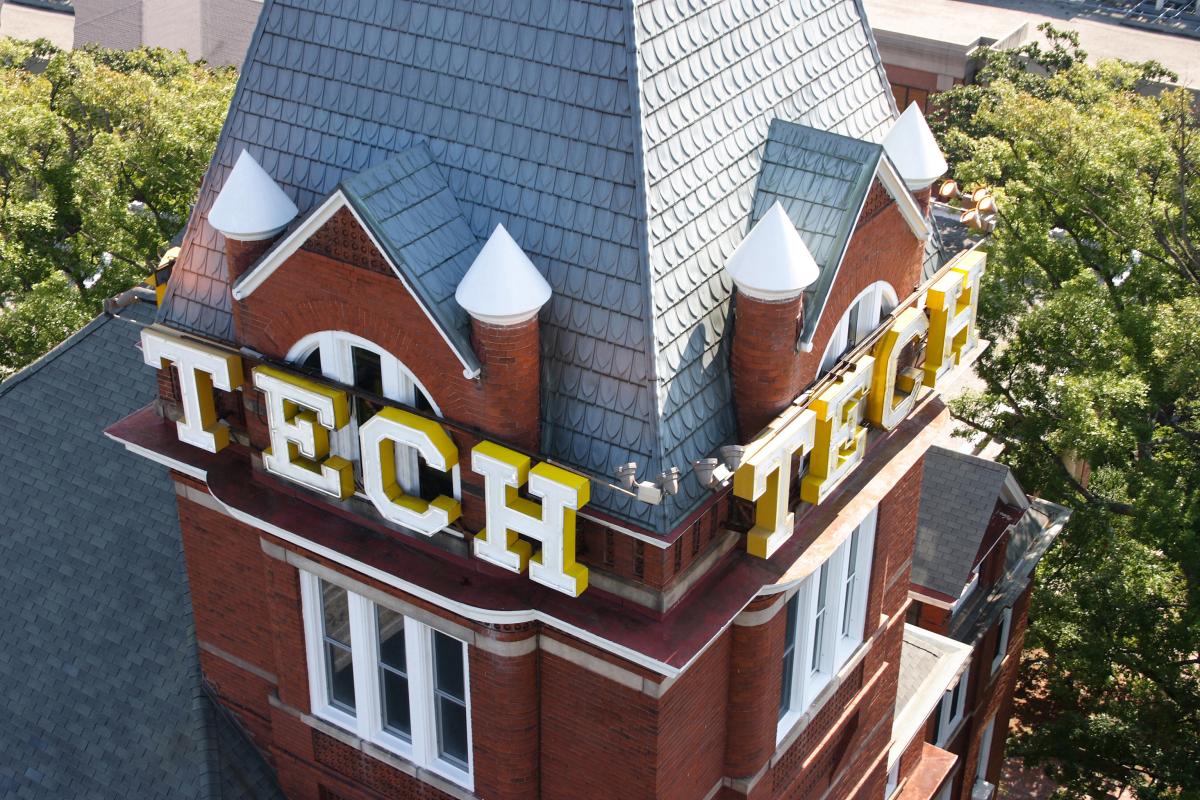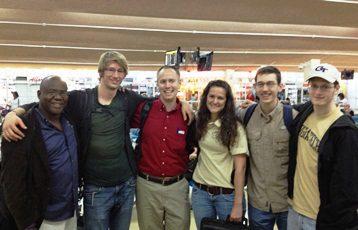
Accompanying them were two officials from Siemens Corporation, one of several corporate sponsors that help EWB-GT thrive.
“They’re going to do assessment in Oloo, a rural community in the north of Uganda, where there is no rain for half the year, which is a problem because then there’s no income and there’s no food,” says EWB President Lily Ponitz, an environmental engineering student.
“They’re going to see about introducing a solar-powered drip irrigation system, and later, we’d like to build a vocational farming school to teach them how to use and maintain the system.”
The Uganda project is one of five that the 85-student Georgia Tech EWB chapter has embraced this year. Funded entirely through student and corporate sponsorship, the chapter is committed to giving members a better understanding of the world through sharing a wealth of engineering expertise with other cultures.
You can read more about the Uganda trip by visiting the EWB Blog. At the group’s Nov. 26 EWB showcase, members described the other involvements and invited their classmates from all majors (particularly engineers!) to join them:
Mungoa-goa, Cameroon, where the Georgia Tech EWB chapter has installed a solar-powered water supply and distribution system, treated well contamination, investigated a new well, and designed a health survey to assess the health needs of this rural community. In the spring of 2013, the team will drill the second well and implement the community health survey.
“The people in this community had to hike down the side of a mountain to get water for their families,” says Ponitz, who participated in one of the five trips that the EWB-GT chapter has made. “The system we put in place has made a big difference.”
- Navajo Nation, (Arizona), where the EWB-GT chapter has been working since 2011 to implement a new off-grid, gravity-fed system to deliver safe drinking water to the Black Falls region of the Navajo Nation. The EWB-GT chapter also plans to improve the water quality by implementing a permanent sanitation system.
“The way the land is set up makes things difficult,” said engineering student Josh Cherian during the Nov. 26 EWB presentation. “The land belongs to the Navajo people but they cannot make changes on it or get any government help. Most people are off the grid, in terms of their electricity and water, because of this.”
- Clean Cookstoves, a project that is developing and distributing affordable, clean-burning, and sustainable cookstoves in Cameroon, Uganda, Honduras and Panama. Using a PVC pipe as a mold, students designed a stove that uses less fuel and does not produce harmful smoke.
“The smoke that is emitted from traditional stoves causes serious respiratory illnesses and has caused as many as two million premature deaths a year,” said engineering student Heidi Vreeland during the EWB showcase.
“Once we have the PVC pipe, which is pretty cheap, we can use mud and sawdust and other materials that are in the country to create a stove that forces the rising smoke to spin. That turbulence allows the air to get hotter so that the heat burns off the particulate matter.”
In addition to working with community members to distribute the stoves, the EWB chapter is continually testing the emissions.
- School Outreach is an EWB-GT initiative that sends engineering students directly into the Atlanta-area elementary and high schools, where they speak with children about the engineering field in general, and EWB’s work, in specific.
“A lot of young kids don’t know what engineers do, or that the profession may give them the opportunity to use their skills for a humanitarian cause,” said engineering student Brent Barnes after presenting his group’s work on Nov. 26.
“If we can get in there early enough, we can get them interested so they’ll focus on the right things before they get to college. We’re even looking at starting a partnership with a high school engineering club.”
Inaugurated in the fall of 2011, the School Outreach Project has sent 10 Georgia Tech engineering students into a total of 11 schools. In the future, the project plans to visit as many as 12 schools per semester and to deepen its relationship with the schools it has already visited.
Eventually, the group would like to plan an interscholastic design challenge.
Get involved. To find out more about the Georgia Tech chapter of Engineers Without Borders, visit the EWB-GT website or contact Lily Ponitz at lponitz3@gatech.edu. The group is always interested in recruiting more students and in soliciting anyone with technical expertise to serve as project advisors and sponsors for current and future projects.
